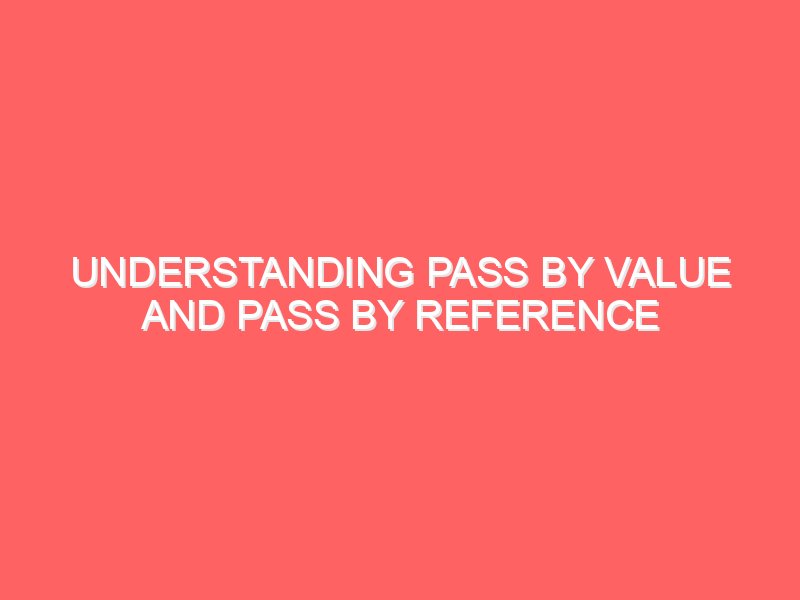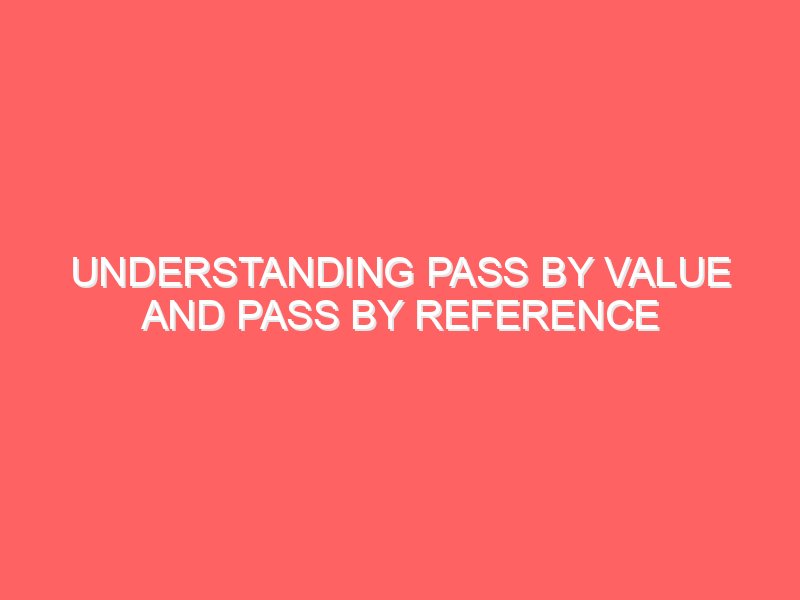Understanding Pass by Value and Pass by Reference in C
Understanding Pass by Value and Pass by Reference in C When working with the C programming language, it is important to understand the concept of passing arguments to functions. C supports two methods of passing arguments: pass by value and pass by reference. These methods have distinct differences in how they handle data, and it is crucial to understand these differences to write efficient and bug-free code. Pass by Value In C, pass by value is the default method of passing arguments to functions. When an argument is passed by value, a copy of the value is made and passed to the function. This means that any changes made to the argument within the function will not affect the original value in the calling code. Let’s consider an example to illustrate pass by value in C: #includevoid increment(int num) {num++;printf(“Inside the function: %dn”, num);}int main() {int num = 5;printf(“Before function call: %dn”, num);increment(num);printf(“After function call: %dn”, num);return 0;} In this example, we have a function called increment that takes an integer argument num. Inside the function, we increment the value of num by 1. However, when we run the program, we can see that the value of num remains unchanged in the calling code. The output of the above code will be: Before function call: 5Inside the function: 6After function call: 5 As you can see, even though the value of num was incremented inside the increment function, the change did not affect the original value in the main function. This is because the argument was passed by value, and any modifications made to it were done on a copy of the original value. Pass by Reference In contrast to pass by value, pass by reference allows a function to directly modify the original value of an argument. In C, pass by reference is achieved by passing the address of the variable as the argument, rather than its value. Let’s modify our previous example to demonstrate pass by reference: #includevoid increment(int *num) {(*num)++;printf(“Inside the function: %dn”, *num);}int main() {int num = 5;printf(“Before function call: %dn”, num);increment(#);printf(“After function call: %dn”, num);return 0;} In this updated example, the increment function now takes an integer pointer as its argument. Inside the function, we use the dereference operator (*) to access the value stored at the memory location pointed to by num. By modifying this value, we are directly changing the original value in the main function. The output of the modified code will be: Before function call: 5Inside the function: 6After function call: 6 As you can see, this time the value of num is incremented both inside the increment function and in the main function. This is because the argument was passed by reference, allowing the function to modify the original value directly. Choosing Between Pass by Value and Pass by Reference Now that we understand the differences between pass by value and pass by reference in C, let’s discuss when to use each method. Pass by value is generally used when you want to perform operations on a copy of the original value without affecting the original value itself. This is useful in scenarios where you want to preserve the original data and avoid unintended modifications. On the other hand, pass by reference is useful when you want to modify the original value or when you are working with large data structures that you don’t want to copy unnecessarily. By passing a reference to the data, you can avoid the overhead of creating a copy and directly manipulate the original value. It is important to note that pass by reference in C is achieved through the use of pointers. Pointers can be powerful tools, but they also require careful handling to avoid bugs such as null pointer dereferences or memory leaks. When using pass by reference, make sure to handle pointers correctly and consider any potential risks associated with pointer manipulation. Conclusion In C, pass by value and pass by reference are two distinct methods of passing arguments to functions. Pass by value creates a copy of the original value, while pass by reference allows direct modification of the original value. Understanding the differences between these methods is crucial for writing efficient and bug-free code. Use pass by value when you want to operate on a copy of the original value, and use pass by reference when you want to modify the original value or work with large data structures efficiently. Remember to handle pointers carefully when using pass by reference to avoid potential issues.
Understanding Pass by Value and Pass by Reference in C Read More »


